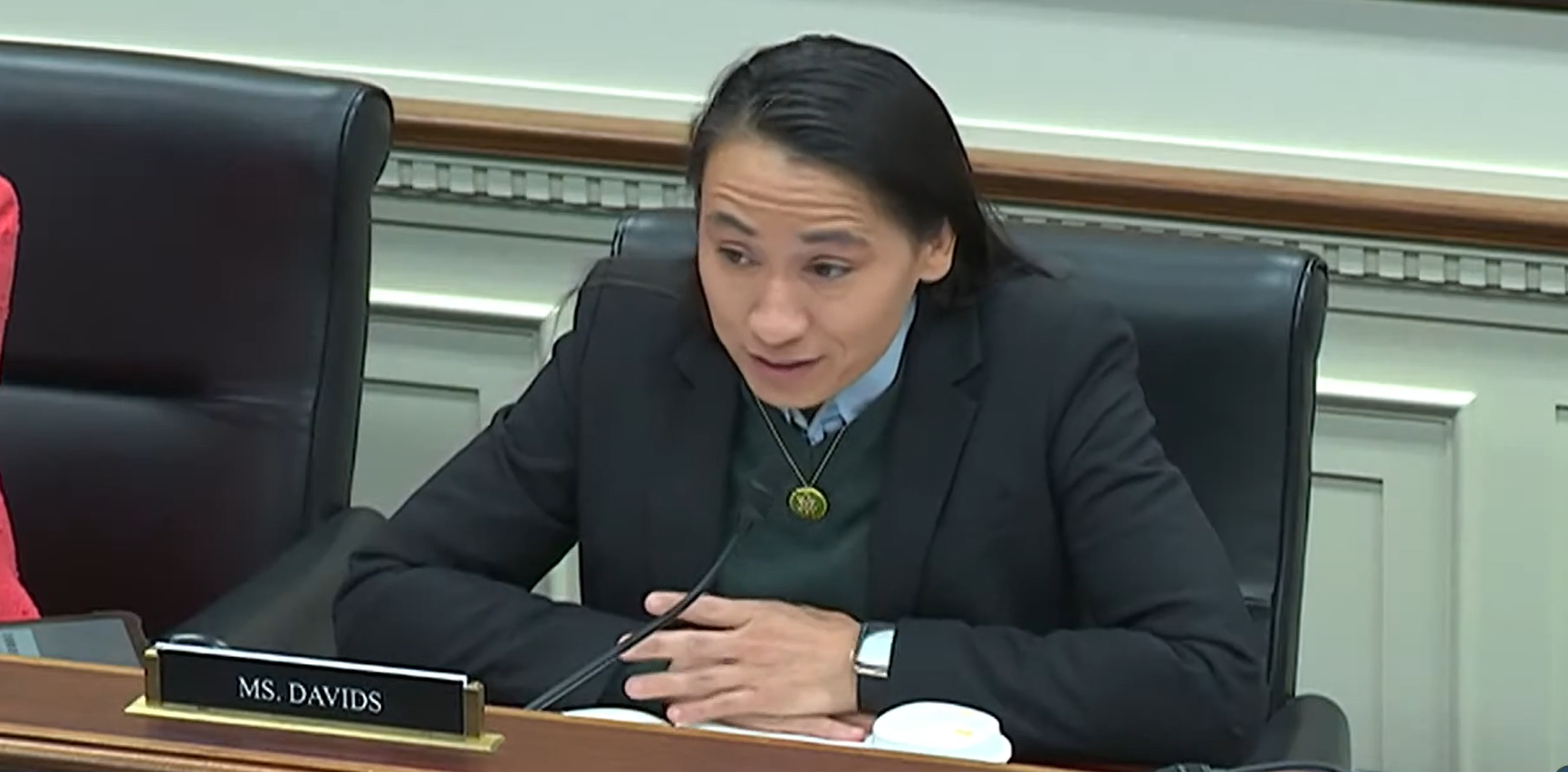
- Details
- By Native News Online Staff
The House Committee on Small Business on Wednesday passed Native American Entrepreneurial Opportunity Act (H.R. 7102) unanimously. The bipartisan bill was introduced by Rep. Sharice Davids (D-KS), who is a tribal citizen of the Ho-Chunk Nation, and Rep. Eli Crane (R-AZ) will enhance the Small Business Administration's (SBA) Office of Native American Affairs (ONAA).
"Small businesses are the heartbeat of our communities and economy, and Tribal businesses are often important employers on reservations and their surrounding areas," Davids said. "We must break down barriers and increase access to resources so that every entrepreneur and business owner can grow their operation and succeed, and it all begins with having a seat at the table. I appreciate the broad bipartisan support for this bill, which aims to provide Native entrepreneurs with direct access to SBA leadership."
Currently, the ONAA has a valuable but limited mission: to support Native American entrepreneurs, conduct outreach with tribal communities, and connect Native business owners with SBA resources. However, because the current SBA budget does not include explicit funding for the ONAA, the office can only support a small staff and can be unilaterally disbanded.
The Native American Entrepreneurial Opportunity Act would codify the ONAA into federal law, establishing an Assistant Administrator role to oversee its operations and report directly to SBA leadership. It would also create a better government-to-government working relationship with Tribes and Native Hawaiian organizations. ONAA would also be able to expand its grant-making ability, establish field offices, conduct tribal consultation, utilize SBA's entrepreneurial and contracting programs, and provide training, counseling, and technical assistance.
“The National Center applauds the leadership of Rep. Davids in introducing the House version of the Native American Entrepreneurial Opportunity Act,” Chris James, President and CEO, The National Center for American Indian Enterprise Development said. “As a former Associate Administrator at SBA, I understand the need for Indian Country to have an advocate within the agency who has a direct line to the Administrator. The unique economic and entrepreneurial needs of our community – and government-to-government consultation – must always be a priority at SBA. I look forward to working with Rep. Davids, House co-sponsors, and Senate champions to ensure this vital bipartisan legislation becomes law in 2024 so that, in years to come, Indian Country will have a seat at the head table in an agency that plays a critical role in boosting tribal economies.”
More Stories Like This
Native News Weekly (August 25, 2024): D.C. BriefsNative News Weekly (February 22, 2026): D.C. Briefs
NCAI Releases Sttatement on the Passing of Rev. Jesse Jackson
Colusa Indian Energy Participates in Port of Quincy Town Hall on Columbia Basin Power Project
Q&A: Jingle Dress Dancer Answered Call to Ceremony in Face of ICE Violence
Help us defend tribal sovereignty.
At Native News Online, our mission is rooted in telling the stories that strengthen sovereignty and uplift Indigenous voices — not just at year’s end, but every single day.
Because of your generosity last year, we were able to keep our reporters on the ground in tribal communities, at national gatherings and in the halls of Congress — covering the issues that matter most to Indian Country: sovereignty, culture, education, health and economic opportunity.
That support sustained us through a tough year in 2025. Now, as we look to the year ahead, we need your help right now to ensure warrior journalism remains strong — reporting that defends tribal sovereignty, amplifies Native truth, and holds power accountable.
 The stakes couldn't be higher. Your support keeps Native voices heard, Native stories told and Native sovereignty defended.
The stakes couldn't be higher. Your support keeps Native voices heard, Native stories told and Native sovereignty defended.
Stand with Warrior Journalism today.
Levi Rickert (Potawatomi), Editor & Publisher


